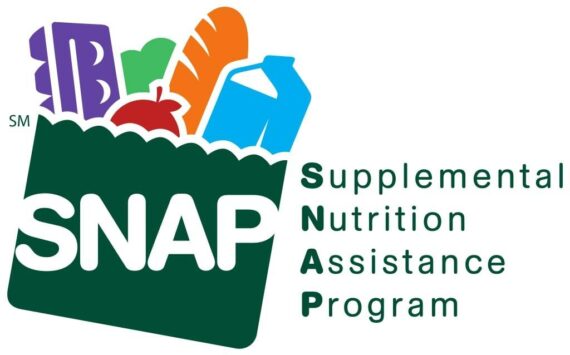By Morf Morford, Tacoma Daily Index
I can deal with good or bad, but “tolerable”? What does that even mean?
Individual and national economies, like the ocean tides, rise and fall. They are relentlessly the same, yet each movement is unique, and, to a degree, never repeated.
And, of course, tides and economies are always in motion.
In most cases, in any economy, of any scale, the same factors come into play; debt and investments, hope, fear and panic are on display.
Consumer confidence, reflected in investment in everything from education to toilet paper, is expressed by every purchase and every dollar saved or invested in the economy.
In 2022, we have characters, themes and opportunities – and hazards – at a degree and intensity like never before.
The International Monetary Fund and World Bank, at their annual meeting on October 13, 2022 declared that we should expect a “tolerable economy”.
In other words, in their usual underwhelming way, they warn us that some entire nations are sinking, and (according to U.S. Treasury Secretary Janet Yellen) about 75 million people around the world are being pushed into risk of starvation – just this year.
Into the breach once again
Here are just a few components of the economy of the next year or two – or more;
Student and health care debt is paralyzing many individuals.
On a global level, more than 60 percent of the world’s poorest countries and 25 percent of middle-income countries are already in, or at, a high risk of debt distress.
The strong US dollar (relative to other currencies) impacts worldwide interest rates and trade.
On the global stage, the dollar is strong – but at home, thanks to inflation, it seems weak.
Interest rates, and the rate of inflation, seem to go up by the day.
Interest rates and inflation might seem high – and, by historic standards, they are, but American rates are moderate, even low, by international standards.
We might complain (and blame) the most and the loudest, but consider living or doing business in Brazil or Russia where the interest rates are, at minimum, about double the US rate.
And, when it comes to inflation, while the USA has about an 8% inflation rate, the Eurozone stands at a bit over 9% while Germany is at about 10%.
Inflation “R” us
If you want real inflation (and I can tell you already that you don’t), Lebanon hosts the highest inflation rate in the world right now at over 167%. It’s expected to average 178 per cent in 2022, up from about 155 per cent last year.
Sudan is facing 117.4 per cent inflation – a decline from 125.4 per cent in July. Inflation in that country has been in three figures for more than two years.
Venezuela’s year-on-year inflation figure is 114.1 per cent, the highest in Latin America
Argentina recorded an annual inflation rate of 78.5 per cent in August, the highest in 30 years.
Inflation in Turkey has soared to 83% – the highest in 24 years.
To put it simply, plummeting currency depreciation and political instability is no one’s friend.
For individuals and entire nations, this a whirlpool that sucks everyone down.
As we (should have) learned back in 2008, every one of us, our work our entertainment and our most basic needs, is woven into the global economy, and every trend, in a positive or negative direction lifts us up or drags us down.
Sovereign defaults: Failure or refusal of the government of a sovereign state to pay back its debt in full when due
If you thought family or individual finances were complicated, consider being a not-so-dominant player in a global economy.
The rise in relative value of the dollar weakens other currencies – especially those of nations who are on the economic edge anyway.
Governments rarely default on the entire value of their debt. Instead, they often enter into negotiations with their bondholders to agree on a delay (debt restructuring) or partial reduction of their debt.
What happens there doesn’t always stay there
Somehow terms like “tolerable crises” from the “experts” don’t give me much comfort or inspiration.
Russia, with its current adventure in Ukraine (and repercussions in world financial markets from oil prices and sanctions to interest rates) is, to put it mildly, impacting prices on fuel, grain and a whole range of shipping processes.
The cost of basic goods, like heating oil and grain, does not just mean that they cost more; it means that some potential customers don’t get them.
And, to sum up human history in a simple phrase, hungry and cold people are not happy.
And desperate people do desperate things.
In 2022, Pakistan, Sri Lanka, Argentina, Egypt, Turkey and many others are in major financial trouble.
Will their financial problems spread around the world like the ultimate virus with a dollar sign?
As the old saying goes, when one body part is in pain, the whole body feels it.
And as every parent of a toddler knows, one tiny sliver can upend the best laid dinner plans.
I keep assuming that we will learn this one basic principle of history; instability and unrest – and floods of dislocated refugees – will, sooner or later, and probably permanently – impact us all, no matter how many thousands of miles away they may have begun.
A modest proposal
I know it seems like a crazy idea, but do you think that with all of our think tanks and experts, we could devise an economic system that didn’t, on a cyclical basis, require bankruptcy, if not starvation, on a massive scale every few years?





